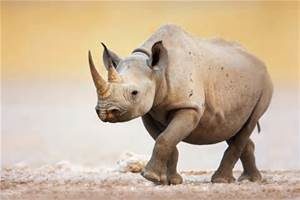New York
NY
USA

More than one ton of ivory will be destroyed in Central Park, sending strong message about wildlife trafficking
On August 3, 2017 at 10:30 a.m., The New York State Department of Environmental Conservation will destroy more than one ton of confiscated illegal elephant ivory in New York City’s Central Park to raise awareness of the poaching crisis and ivory trade. Humane Society International and The Humane Society of the United States are co-sponsors of the event, which is being organized by the Wildlife Conservation Society and NYS-DEC.
Iris Ho, wildlife program manager for HSI, said: “This important ivory crush will show that the world is still standing strong against poaching and the wildlife trade. Many elephants perish for this nefarious trade and destroying this contraband not only serves to memorialize these lost creatures, but it also affirms our stance to protect the remaining elephant populations and allow them to thrive once again.”
Poachers kill as many as 50,000 African elephants every year to supply the illegal ivory trade that is driven by global demand for ivory. The United States is among the world’s largest ivory markets. The crush event is one of several recent steps taken to reverse this trend. The Obama administration placed additional restrictions on imports, exports and interstate sales of ivory in 2016 and New York is one of the seven states that have protected elephants by banning ivory sales within their borders. Destroying stockpiles of seized ivory raises additional awareness about the elephant poaching crisis and reminds current and potential buyers to avoid ivory. It also reinforces the message that majestic animals like elephants should not be reduced to ivory trinkets or vanity items.
Event details:
When: Thursday August 3, 2017, 10:30 a.m.
Where: Central Park, location: https://goo.gl/maps/HNnDmDhsTEn
Who: Iris Ho from Humane Society International will join representatives from other wildlife organizations.
Facts:
- In addition to the U.S., 20 countries on four continents have destroyed their seized ivory and rhino horn stockpiles, with at least 27 destruction events taking place since 2011. More than 200 tons of seized ivory and rhino horns have been crushed and/or burned to date. These destructions are a high-profile response by the concerned countries and demonstrates their commitment to combat wildlife trafficking.
- The African elephant is facing an unprecedented poaching and trafficking threat. Between 2010 and 2012, an estimated 100,000 elephants were killed illegally to meet the global demand for ivory. Forest elephants in Central Africa have experienced a 65 percent reduction in their populations, with imminent extirpation if the poaching rate persists. In September 2016, the Great Elephant Census, the first pan-African aerial survey of savanna elephants in decades, revealed a disturbing 30 percent decline of the species since 2007.
- While federal laws and regulations prohibit the import, export and interstate trade of ivory items in the U.S., they do not affect the sale or trade within state borders. Fortunately, New York has joined New Jersey, California, Hawaii, Oregon, Washington, and Nevada in banning the intrastate trade of ivory and other items from imperiled wildlife species, and Pennsylvania, Massachusetts and Nebraska are now considering similar measures.

Leave a Reply